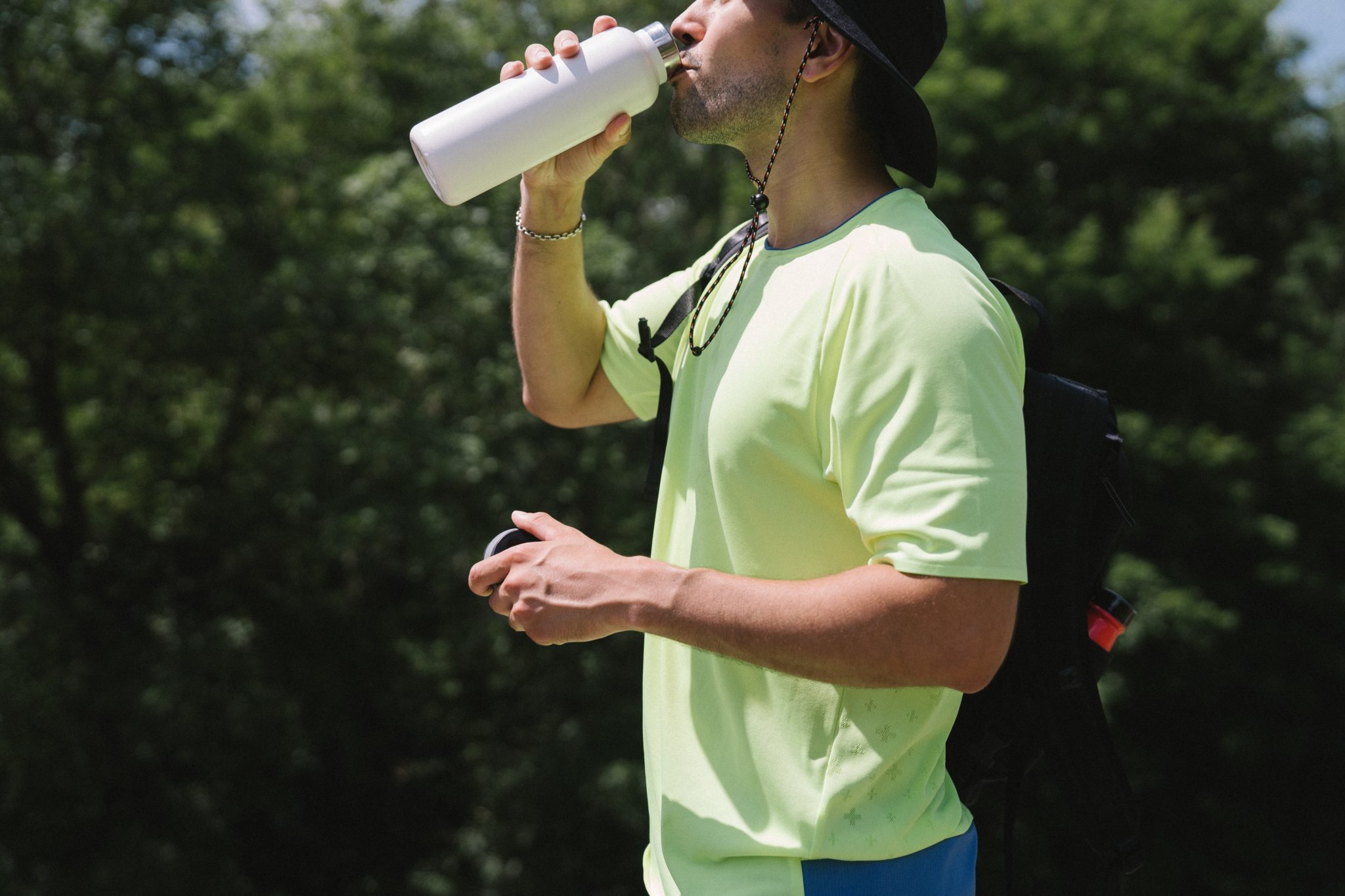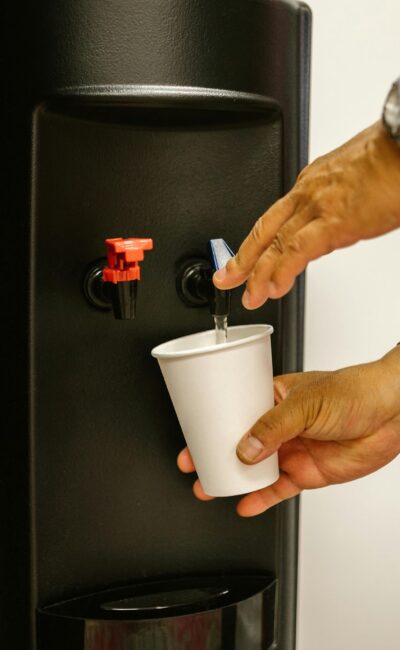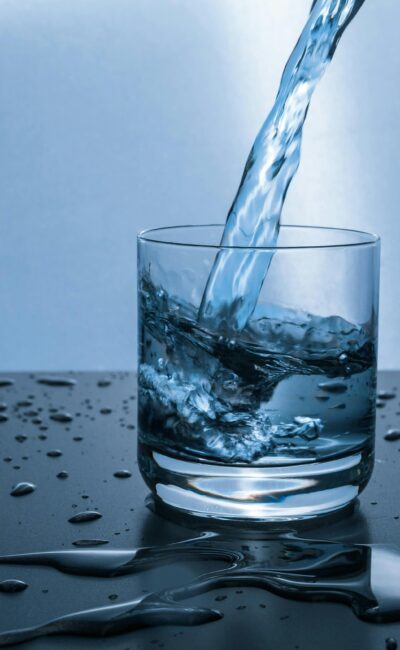There are three general pillars of maintaining good health: regular diet and exercise, plenty of quality sleep, and proper hydration. When one of these is lacking, it disrupts the body and increases the risk of illness and/or injury. Maintaining proper hydration during exercise is not as common as one might think.
While many may remember to drink plenty of fluids prior to breaking a sweat, it’s all too easy to forget to hydrate during the workout itself. Experts say the average person loses approximately 17 to 50 ounces of water per hour when exercising.1 When fluids aren’t replenished, it can easily lead to dehydration, which poses various health risks. Here are 10 of the most common dangers of exercising while dehydrated.
1. Overheating
Dehydration during a workout can quickly lead to overheating of the body. Vigorous exercise leads to maximum sweating, which means more water is lost. When this loss isn’t replenished through adequate water intake, the body can negatively react in multiple ways. The repercussions of overheating caused by dehydration can range from heat cramps to heat exhaustion, depending on the type of physical activity and body temperature.
Proper airflow in gyms is essential, especially as temperatures outside start to warm up. Also, drinking fluids when exercising outdoors is important. Dehydration can easily set in on long hikes and prolonged outdoor physical activity even when the weather feels cooler.
2. Lack of Sweat Production
If sweating profusely is an indicator of dehydration while exercising, lack of sweat production may seem like hydration levels are intact. However, some people have sweat glands that don’t function properly, or certain temperatures can increase or decrease the amount of sweat being produced. Sweating is a good sign since it’s the body’s way of cooling itself down. When there is a lack of sweat production, it can cause overheating as the body increasingly becomes dehydrated without the sign that it needs to take a water break.
3. Low Blood Pressure
Dehydration can lead to low blood pressure due to a decrease in blood volume. Blood volume is the amount of fluid found in the blood vessels. Dehydration during a workout can change the blood volume and limit oxygen and nutrients from reaching your organs. Low blood pressure is also often linked to other symptoms like feeling lightheaded and weak due to the organs not getting what they need to function at their best. In some instances, dehydration can cause the body to go into shock and can ultimately be life-threatening.
4. Kidney Failure
Exercising while dehydrated can also lead to kidney failure. When the kidneys can no longer remove excess fluids and waste from the body, it can cause the body to shut down. Typically, this type of complication only occurs when there is consistent dehydration. Although even mild cases can cause damage to the kidneys and create bigger complications down the road.
It’s recommended to consume at least 17 to 20 ounces of water a couple of hours before exercising and another eight ounces every 10 to 20 minutes. It can be easy to get caught up in the momentum of a workout or sport and forget to stay hydrated.
5. Vomiting
Severe dehydration can lead to nausea and/or vomiting. Vomiting then causes the body to lose even more fluids, worsening the initial problem. This symptom often occurs in hypertonic dehydration, which is when there’s an imbalance of salt and water in the body. This often occurs when a person doesn’t drink enough water and experiences excessive sweating. Milder symptoms like dry skin or tiredness may ensue before realizing the imbalance and more severe symptoms like vomiting and severe muscle cramping occur as dehydration worsens.
6. Fatigue
One of the tell-tale signs of even mild dehydration during a workout is fatigue. Feelings of weakness or less endurance can be the result of body fatigue. This can result in poor form when lifting weights or slower movements and reactions, all of which can lead to injury. Staying hydrated supports healthy body functioning and allows athletes to perform at their best.
Often, people prioritize eating enough protein to keep up their strength, which is important. However, it’s common for dehydration to be the factor that affects a workout and the risk of illness or injury because maintaining a regular water intake isn’t made a high priority.
7. Dizziness
Another of the main dangers of dehydration during exercise is dizziness. The slightest feeling of it can make a person feel off-balance and lead to injury. Most often, dizziness is due to a lack of fluid intake and excessive sweating during exercise. Hydrating before and during a workout is essential to prevent any lack of fluids. Change in body temperature or overexertion of any kind can quickly lead to dizzy spells if not properly hydrated.
8. Headache
Even a mild headache can throw off a workout rhythm and can indicate other symptoms to come. A dehydration headache is caused by the brain tissue shrinking, which puts pressure on the nerves due to fluid loss, leading to a dull throbbing or sharp pain. This type of headache is noticeably different from a tension headache or migraine because it resides in the head only (versus the neck, shoulders, or other areas of the body). It also normally goes away after drinking water and taking time to rest.
9. Increased Thirst
On its face, increased thirst is more of a symptom than a danger. However, persistent excessive thirst can be an indicator of other illnesses, like anemia or diabetes. An increase in thirst is the body’s way of warning of dehydration. The body can’t carry out its normal functions which can make exercising more difficult. Although, excessive water intake all at once can make the body feel weighed down and lead to cramps, which also derails workout efforts. When exercising, it’s best to drink water consistently in smaller amounts before, during, and after a workout.
10. Rapid Heart Rate
When there is water loss in the body, it creates an electrolyte imbalance. Electrolytes are essential in carrying signals between the cells to the organs, including the heart, to support optimal functioning. One of the dangers of dehydration during exercise is it can cause a sudden change in blood pressure and rapid heart rate. In extreme cases of dehydration, there’s the possibility of a heart spasm which can cause arrhythmia and be fatal.
Staying Healthy and Hydrated While Working Out
To prevent symptoms and subsequent injuries when exercising, focusing on hydration must be part of a regular routine. Providing convenient access to clean, pure-tasting water is one of many fitness center standards that must be implemented for gym-goers and athletes who need to stay hydrated when exercising.
FloWater’s Touchless Water Dispenser delivers multiple benefits to promote healthy, hydrated behavior. Here are a few of the many ways it exceeds the offerings of the average water dispensing system and how it provides true health benefits to everyone who uses it.
Alkaline Enhancement
The first three steps of the advanced FloWater filtration process purify tap water and remove up to 99% of all contaminants. In the fourth step, the water goes through the improvement phase. At the Alkaline Enhancement stage, a blend of ten trace minerals is added to raise the pH levels of the water originating from the tap. This helps to neutralize acidity in the body, which helps relieve stress on the internal organs.
Some water filtration methods, like reverse osmosis, remove everything from tap water, including valuable elements that are good for the body. The Touchless Water Dispenser removes pollutants, bacteria, and viruses from tap water but then enhances to improve the overall taste and quality.
Electrolyte Enhancement
The Touchless Water Dispenser also adds back essential electrolytes to support healthy body functions. Following the Alkaline Enhancement, the Electrolyte Enhancement phase adds in potassium, sodium, calcium, and magnesium to support cell repair, bone strength, and energy levels, ideal for working out. These are the same electrolytes athletes seek out in popular sports drinks, coconut water, and brand-name bottled water.
With FloWater, people receive the same benefits but without the addition of sugar, calories, and artificial additives. Additionally, there is no need for single-use plastic water bottles. It encourages people to bring and refill their own water bottles as much as needed during their workout.
Advanced Technology of a Touchless System
In addition to the water itself, the Touchless Water Dispenser rapid fill and foot pedal capabilities promote social distancing and a contact-free option, which makes following gym usage rules one step simpler. The Refill Station holds seven gallons of purified water at all times, which easily serves a high capacity of gym members throughout the day. Though it only takes seconds to dispense water, with the use of the simple-to-use foot pedal, eliminating a backup of people crowding together in one space will only optimize your gym floor plan.
When heading to the gym or fitness center, people want a convenient way to rehydrate without having to rely on faulty water fountains or vending machine options. Having the proper gym water dispenser is a valuable gym amenity that benefits everyone. It provides great-tasting, purified water on-demand to keep members hydrated and healthy. Learn more about all the benefits FloWater delivers today.
Sources:
- U.S. News & World Report. How Much to Drink When Exercising. https://health.usnews.com/wellness/articles/2018-07-09/how-much-you-really-need-to-drink-when-exercising
- Mayo Clinic. Dehydration can lead to serious complications. https://newsnetwork.mayoclinic.org/discussion/dehydration-can-lead-to-serious-complications/
- Healthline. Dehydration: Causes, Symptoms, Treatment, and More. https://www.healthline.com/health/dehydration#risk-factors
- Healthline. Dehydration and Blood Pressure: What’s the Connection? https://www.healthline.com/health/dehydration-and-blood-pressure
- Healthline. Hypertonic Dehydration: Symptoms, Causes, and More. https://www.healthline.com/health/dehydration-and-blood-pressurehttps://www.healthline.com/health/hypertonic-dehydration
- Cleveland Clinic. Dehydration Headache: Dehydration Symptoms and Types of Headaches. https://my.clevelandclinic.org/health/diseases/21517-dehydration-headache
- Everyday Health. Dehydration Health Risks: 101. https://www.everydayhealth.com/dehydration/health-risks/





